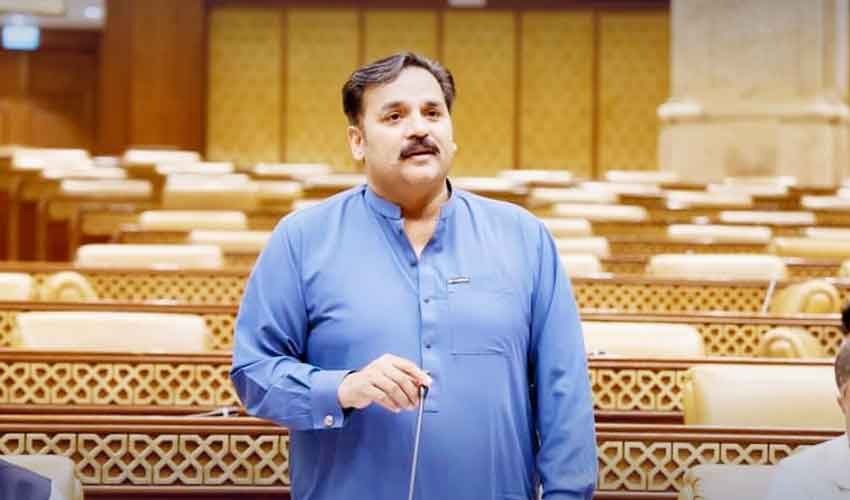Gunfire Attack
PML-N MPA Chaudhry Kashif Naveed Pansota narrowly escaped a gunfire attack during his visit to the Marot area in Fort Abbas on Sunday. The incident occurred while the MPA was on a routine visit to various villages in the region, aiming to meet with local constituents and assess their concerns.
What began as a typical political visit soon turned into a harrowing experience as the MPA’s convoy came under attack.
According to eyewitnesses, the situation escalated rapidly when MPA Pansota’s convoy was abruptly halted by a group of hostile individuals.
The crowd, visibly angered, began chanting aggressive slogans of “lota, lota,” a term often used in Pakistan’s political context to accuse someone of switching allegiances or betraying their party. The crowd also hurled abusive language at Pansota, creating a tense and volatile atmosphere.
As the hostility grew, the MPA’s security detail, sensing a potential threat to his life, responded with gunfire to disperse the crowd and ensure the safety of the MPA and his convoy. The exchange of gunfire, however, did not result in any casualties.
The incident has raised serious concerns about the security situation in the region, especially for political figures who frequently visit their constituencies to engage with the public.
Reflecting on the incident, MPA Chaudhry Kashif Naveed Pansota expressed his concerns over the rising threats to his safety. “This is not the first time I have been threatened,” Pansota revealed, shedding light on the challenges and risks faced by politicians in volatile areas.
He further mentioned that due to the increasing hostility, the area of 317 HR in Fort Abbas has now become a “no-go zone” for him, indicating that his movements in the region would be restricted for the foreseeable future.
The MPA’s statement highlights a growing problem for political representatives in Pakistan who face backlash and threats, especially in areas where political tensions run high.
The use of slogans like “lota, lota” underscores the deep-rooted frustration among some locals regarding perceived betrayals or political decisions made by their elected representatives.
The incident not only poses questions about the safety of politicians but also points to the broader issue of political intolerance and the need for dialogue and understanding among differing political factions.
The authorities have yet to issue an official statement regarding the incident. However, the attack on MPA Pansota underscores the urgent need for enhanced security measures for public figures in areas where political tensions can flare up unexpectedly.
Local law enforcement agencies are expected to conduct an investigation into the matter to identify those involved in the ambush and prevent such incidents in the future.
For now, MPA Pansota’s narrow escape has served as a stark reminder of the volatile nature of regional politics and the challenges that come with serving as a public representative in such an environment.
As the situation develops, it remains to be seen how the government and law enforcement will respond to ensure the safety and security of their elected representatives and maintain order in the politically charged region of Fort Abbas.
I am a dynamic professional, specializing in Peace and Conflict Studies, Conflict Management and Resolution, and International Relations. My expertise is particularly focused on South Asian Conflicts and the intricacies of the Indian Ocean and Asia Pacific Politics. With my skills as a Content Writer, I serve as a bridge between academia and the public, translating complex global issues into accessible narratives. My passion for fostering understanding and cooperation on the national and international stage drives me to make meaningful contributions to peace and global discourse.










